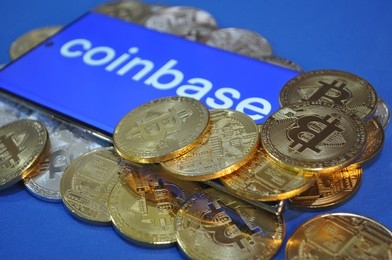Sentora's report warns that corporate adoption of bitcoin as a treasury asset is akin to playing 'balance sheet roulette.'
Updated Aug 14, 2025, 12:21 p.m. Published Aug 14, 2025, 12:00 p.m.
Institutional DeFi platform Sentora published a new report on Thursday, arguing that the corporate adoption of bitcoin
as a treasury asset, while popular, resembles a "balance sheet roulette."
"Bitcoin’s scarcity and programmability make it an unprecedented corporate asset — but without scalable yield and durable financing, most current adopters are playing a dangerous game of balance sheet roulette,” Patrick Heusser, Head of Lending at Sentora, stated in the report.
The report analyzed the strategies of 213 public, private and government entities that collectively hold 1.79 million BTC, worth $214 billion as of August 2025. Publicly listed companies account for 71.4% of these holdings, which means roughly 1.27 million BTC is part of corporate balance sheets.
The accumulation strategy is based on a centuries-old wealth-building playbook: borrow fiat to acquire a scarce, hard asset. With its supply capped at 21 million, bitcoin is a provably scarce asset that has outperformed every other major asset by leaps and bounds over the last decade.
"Strategy distinguished itself by engineering the exposure like a capital allocator—using long-dated financing, asymmetric timing, and shareholder alignment to create a synthetic BTC derivative inside a public vehicle," the report said.
Negative carry risk
However, the report identified a critical flaw: the strategy of accumulating coins with borrowed money is a "negative carry trade," because BTC, by itself, is a zero-yielding asset like gold.
Unlike land or productive real estate, bitcoin doesn't generate income or cash flow on its own. It just sits on the balance sheet. The cost of borrowing money to buy bitcoin, therefore, is a direct, ongoing expense with no offsetting cash flow.
The return from the strategy, therefore, is wholly dependent on capital gains stemming from continued price appreciation, which makes it structurally fragile.
If the carry trade breaks due to prolonged price stagnation or a market drop, the results can be "binary and reflexive". A drop in bitcoin's price would threaten the collateral backing their debt, causing their stock price to decline and making it difficult for them to raise new capital.
This is because most of the companies that have accumulated BTC as a treasury asset are either unprofitable or heavily dependent on BTC mark-to-market gains to appear solvent.
These companies could then start selling their core BTC holdings to meet their obligations, which would further push the price down, creating a downward spiral.
The report explicitly stated, "There is no lender of last resort here—no circuit breaker, no refinancing facility."
The report draws a parallel to gold, noting that a "gold treasury company" never emerged because gold also doesn't yield and is cumbersome to store and move.
The bitcoin treasury strategy faces the same fundamental challenge: until bitcoin can mature into "productive digital capital" that generates a scalable, reliable yield, it remains a risky, speculative bet, the report noted.
Read more: Michael Saylor's Strategy Adds $18M of Bitcoin on Five-Year Anniversary of First Purchase
Disclaimer: Parts of this article were generated with the assistance from AI tools and reviewed by our editorial team to ensure accuracy and adherence to our standards. For more information, see CoinDesk's full AI Policy.
AI Boost
“AI Boost” indicates a generative text tool, typically an AI chatbot, contributed to the article. In each and every case, the article was edited, fact-checked and published by a human. Read more about CoinDesk's AI Policy.
More For You
ICP Rallies to $6.08 Before Sharp Reversal Amid Security Concerns

ICP posts 5% swing before consolidating, after security concerns gripped the ecosystem.
What to know:
- ICP surged from $5.84 to $6.08 before reversing sharply within a 23-hour trading window.
- Security breach at Odin.fun reignites concerns over Internet Computer authentication vulnerabilities.
- Final hour consolidation in tight range signals market indecision following earlier volatility.
.png)
 2 months ago
6
2 months ago
6





